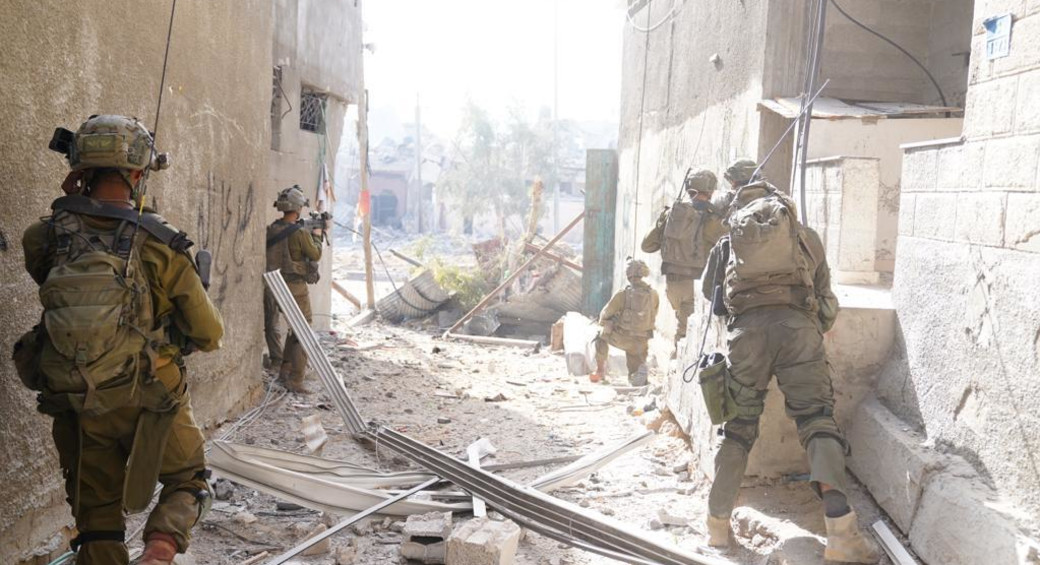“The State of Israel will not stop its operations in Gaza until our troops fulfill their missions: destroying Hamas and returning our hostages home to their families," Defense Minister Yoav Gallant stated during a meeting with US Special Coordinator for the Middle East Brett McGurk on Wednesday.
Notably, the meeting took place as the IDF was mid-operation inside the controversial Shifa Hospital in Gaza City, the center of large amounts of global media coverage of the war for much of the last week.
Despite intense global criticism, top US officials have backed Israel's narrative that Hamas is abusing the hospital by storing weapons and having its forces stationed there. McGurk's meeting with Gallant mid-operation in the heat of the criticism also has significance.

The defense minister's publicizing his commitment to continuing the war—despite increased pressure from the US and EU allies for an extended humanitarian "pause" (rather than a ceasefire)—was also an indication of the evolution of the two countries' dialogue on the issue.
Gallant began the meeting, also attended by IDF Strategic Affairs Commander Maj.-Gen. Eliezer Toledano, Defense Ministry Diplomatic-Security Chief Dror Shalom, and Brig. Gen. (res.) Professor Yitzchak Kreiss, by expressing his appreciation to the US administration for the ongoing support and deep partnership on all levels.
Kreiss, besides being director-general of Israel's Sheba Medical Center at Tel Hashomer and working extensively with the IDF, also worked with the Mossad extensively at the early stages of the coronavirus pandemic on mixed medical-national security issues. Including him in the meeting could be important for Israel to help McGurk interpret the various hospital controversies involved in the Israel-Gaza War.
Beyond the hospital issue, Gallant also briefed McGurk on IDF operational developments in Gaza, and the complexities both of the hostage situation and of Hamas's systematic use of mosques, schools, and other civilian locations.
Need to curb West Bank violence
The two also discussed humanitarian aid efforts by Israel to Gaza's civilian population.
A US National Security Council statement just before the trip said that in Israel McGurk would "discuss Israel’s security needs and the imperative of protecting civilians in the course of military operations, as well as ongoing efforts to secure the release of hostages, and the need to rein in violent extremist settlers in the West Bank.
"In the West Bank, Mr. McGurk will discuss the Biden administration’s support for the Palestinian Authority and its essential role as the representative of the Palestinian people, as well as the need for reforms to promote long-term stability in both the West Bank and Gaza, and the aspirations of Palestinians to live with equal measures of freedom, security, and dignity in a state of their own," added the statement.
